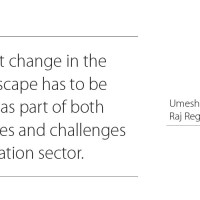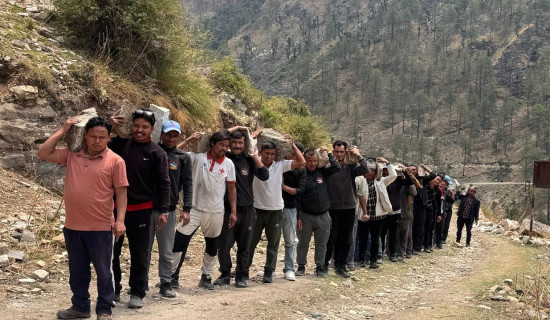- Thursday, 26 June 2025
Reviewing Vladimir Lenin’s Legacy
One hundred years after his demise, Vladimir Lenin, who masterminded the 1917 Russian Revolution, continues to inspire communist and left movements in different parts of world though the Soviet Union he created collapsed in 1990. Jan 21, 2024 marked his death centenary and the occasion was not observed with much fanfare in his own country. On Sunday, a few dozens of communist leaders and cadres attended at Red Square in Moscow and paid their respects to the man who established world’s first socialist state - Union of Soviet Socialist Republics (USSR). Gennady Zyuganov, General Secretary of the Communist Party of the Russian Federation, who led the people paying tributes to the late Bolshevik leader, said, “Lenin tried to build a just world with brotherhood among nations — without capitalism."
Of course, he developed an alternative model to the capitalist system based on the theory of Marxism but it buckled under its own ‘inherent contradictions,’ the terms that Marx used as factors leading to the ultimate downfall of capitalism. Nonetheless, by 1922 Lenin had perceived the systemic flaws in his Soviet system - excessive bureaucratisation of party and concentration of immense powers in the hands of a single person, with the appointment of Stalin as the party general secretary. These had begun to choke the new communist dispensation from top to bottom. More importantly, there were no credible institutions and structures beyond the party, which could serve as the bulwark against the potential crisis. These institutions would also be crucial in channeling the voices, aspirations and needs of the general public.
Frustration
Lenin vehemently opposed one-man rule and personality cult. He had propounded theory of ‘democratic centralism’ as a guideline to elect the party leadership and run the organisation. He gradually realised that inner-party democracy was becoming weak and centralism gaining upper hand. He called for picking the leadership through the votes of Soviets of Workers’ and Peasants’ Deputies but he was frustrated as their powers were drained and flowed to the centre. He was afraid whether the party would not realise his vision of socialism that he had depicted in his seminal work ‘State and Revolution.’
In order to reverse these trends, Lenin asked his comrades to remove Stalin from general secretary, citing that he was ill-suited for the position and install Leon Trotsky in his place. In 'Lenin Testament,' he appreciated Trotsky's superior intellect but at the same time disapproved his penchant towards excess administration. He prescribed that the man who holds this position 'should be more tolerant, more polite and more attentive towards comrades, less capricious, etc.' Physically frail and bed-ridden, Lenin's plea for the leadership change was lost in the wilderness.
As a pioneer in developing and implementing Marxism, Lenin's legacy has been contested. His methods of dealing with the opposition and enemies were harsh and sometime ruthless, especially when his nascent communist state faced an existential threat. This approach has largely been blamed for the rise of Stalin, who did not only accumulate all powers in his hands but also brutally sidelined other veteran Bolsheviks that stood in his way and ruled the country with an iron fist. With the dissolution of USSR, his credibility as the most influential and revolutionary leader of 20th century also suffered a setback. And the capitalist world weaponised this in demonising and vilifying him to the hilt.
However, the vilification drive can hardly overshadow the transformative changes that Lenin's Soviet system brought about and were followed in other nations. Upon assuming power, he issued a series of sweeping decrees, having far-reaching implications and impacts. The public utilities, large-scale enterprises such as the banks, railways, landed estates, textiles, mines and other major industries were nationalised while smaller businesses were allowed to operate privately. The nationalised lands were distributed to the farmers. Similarly, another decree limited work period to eight hours a day. Workers had also acquired right to form committee to monitor the management of industries.
The government guaranteed free, secular education for all children in Russia. Soviet regime set milestone in boosting women emancipation. Women were given right to property, divorce and abortion. Under Lenin, Russia became the first nation to legalise abortion more than a century ago. This might sound strange for the American women rights activists, who are still hitting the streets to secure abortion right. The Church was separated from the state. As a temporary measure, Lenin banned the opposition media outlets, terming them as counter-revolutionary but this move irked his own Bolshevik comrades. Similarly, he granted rights to the non-Russian ethnic groups to secede from Russian authority and establish their own independent nation-states.
New Economic Policy (NEP), introduced in 1921, marked another significant step in rebuilding the economy crippled by the civil war. Lenin himself called it 'state capitalism' which permitted to run private enterprises, unveil wage system and sell agriculture products on the open market while levying taxes on their incomes. Scores of Bolsheviks were against the NEP, citing that it betrayed the core socialist values. Lenin worked hard to convince his comrades and endorse it into a law. NEP is considered to have influenced Chinese leader Deng Xiaoping to launch his landmark economic reform and opening-up in late 1970s.
Inequality
In his famous work, 'Imperialism, the Highest Stage of Capitalism,' Lenin defines imperialism as the product of monopoly finance capitalism. This argument still holds water in understanding the 21st century's corporate-led globalisation that has increased economic inequality and digital divide by amassing the wealth in the hands of a few businessmen. Because of his hardliner thought, Lenin was isolated by the capitalist West but he found friends and allies in the colonial world. He was the first head of state to champion for the rights of the people in the colonies and semi-colonies, and called for their self-determination and independence, fuelling liberation movements across Asia, Africa and Latin America.
Lenin enriched Marxism by offering historic analysis of classes – workers and peasants - as the agents of revolution while highlighting new dimension of capitalism – imperialism. He practically established a new reality – even weak, poor and exploited people can create power to set off monumental changes if they are organised on the basis of clear ideology, programme and strategy.
Today historical proletariat class, the product of industrial revolution, is no longer in existence. This class is supposed to carry out the Marxist revolution in the industrial nations. The new social and economic classes have emerged. According to a research, there are at least nine classes in the industrial nations. Carrying out revolution in line with Lenin's revolutionary theory seems unfeasible at the moment due to changed socio-economic realities and conditions but it has forced to drastically reform capitalism, with huge concessions to the working class people. His ideas are instrumental in the adoption of welfare state and social justice principle in the countries that are hostile to communism.
(The author is Deputy Executive editor of this daily.)

















